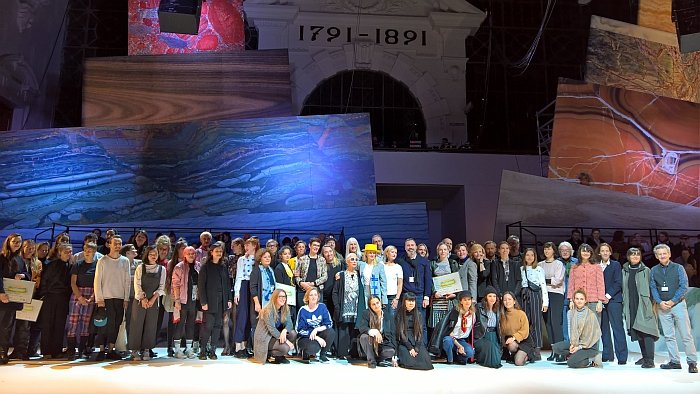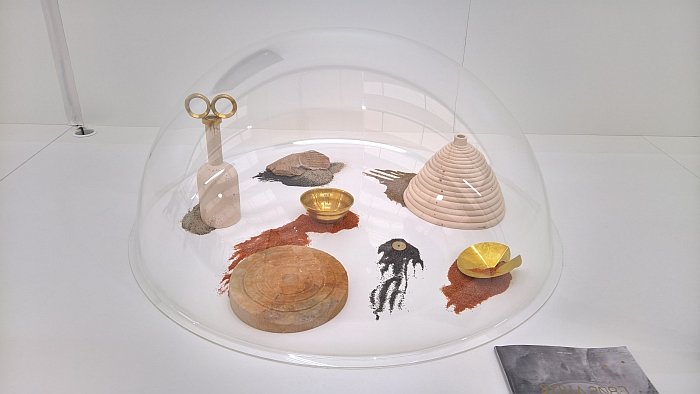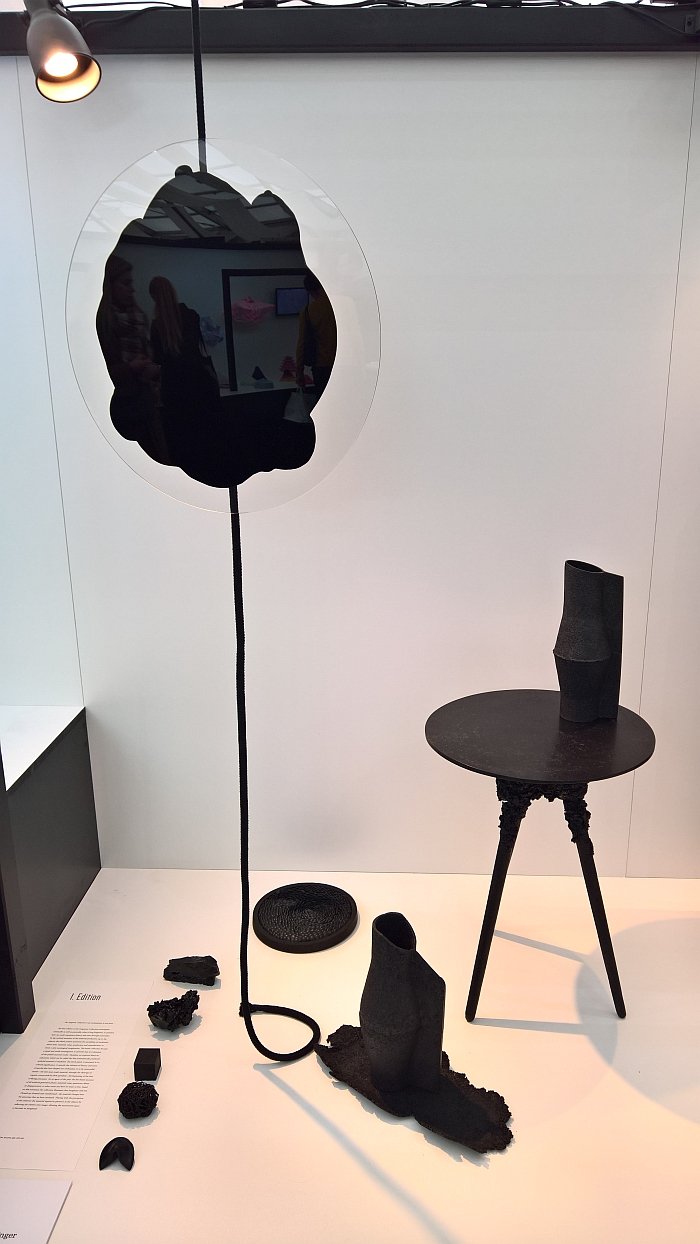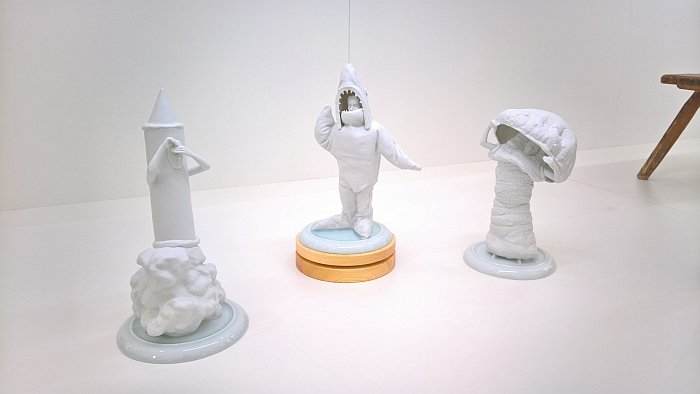In context of Designblok Prague 2017 the winners of the fourth edition of the pan-European design graduate competition Diploma Selection were unveiled at a ceremony in the city's Palace of Industry.

Initiated in 2014 as a joint initiative by Designblok and the European Union National Institutes for Culture, EUNIC, Diploma Selection is open to all students graduating in Fashion or Product Design in 2017. The competition format cleverly, and very properly, distinguishing between the two creative disciplines.
Diploma Selection 2017 attracted some 152 entries from graduates of 42 design schools across 17 European nations, from which a pre-jury compiled shortlists of 15 Product Design and 15 Fashion projects, before two international jury selected the three respective prize winners. Including a double first for the Academy of Fine Arts Warsaw.
Congratulations to all!
As the war in Syria continues unabated, we make ever more concrete plans for colonies on Mars. Or put another way, while an ancient culture is being destroyed, we're racing to establish a new one. Or perhaps more honestly, through focussing on the future success of colonising Mars we hope to distract ourselves from our failure to protect Syrians and Syrian culture. For her graduation project at the Academy of Fine Arts Warsaw, Anna Banour created a collection of objects which embody elements of Syrian culture, stories as she refers to them, in new forms; future-safe forms thanks to the references to Mars and Mars missions included in the objects. The project title takes its name from the fact that 1987 saw the first Syrian in space, 100 years later it is destination Mars.
Full details can be found at www.behance.net/annabanout

As much as work of archaeology as it is products design, Universität der Künste Berlin graduates Anja Lapatsch & Annika Unger travelled back to what they refer to as the "first systematically produced artificial material of mankind": Birch tar and pitch, a material whose history they date back some 220,000 years. But how do you work with it? What is good for? How does it behave? The research and exploration of such and similar questions being visualised in a collection of objects which through exploring historic, forgotten, materials and production reflects on contemporary attitudes and realities as regards consumption, production, values, materiality. History, as we all know, not being linear, but an obtusely repeating helix.
Full details can be found at www.lapatschunger.com

Jan Evangelista Purkyne University Ústí nad Labem graduate Helena Petlisova's graduation project was presented at Designblok as three figurines depicting Helena in three different "mascot" costumes - a shark, a rocket and a fly agaric toadstool. The costumes however standing merely as metaphor for those guises, masks, armour, wounds, emotions, which "clothe" us: some active decisions on our part, some fate. A gentle, humorous, accessible reflection on the contemporary human, contemporary humanity and contemporary society.

With her project Swoi, Academy of Fine Arts Warsaw graduate Uta Sienkiewicz explored the specifics and characteristics of Polish fashion, from ancient folk costumes through the various, and very complicated periods in the country's history, including its brief disappearance, and right up to contemporary, not always positive, ideas of Polish national identity. The result is a collection which melts the various influences into a contemporary, streetwear influenced, collection, which Uta states emphasises "the beauty of the Polish heritage of clothing" Swoi is polish for peoples/natives/folks, so the lineage that stands behind us.
"Next to the oil industry, the fashion industry is the second most problematic field of human activity in relation to the environment" notes Academy of Arts, Architecture and Design Prague graduate Lenka Vacková. Considerations on that reality from her perspective as a designer, formed the subject of her graduation project. The development of a new recycled fabric as a cost-effective, local, material for the fashion industry the result.
The changing nature of "work", and for all the changing role and function of men's work, and the extrapolated changes in perceptions and understanding about men's place and role in work and society formed the basis of Gesine Försterling's graduation project at the Universitäte der Künste Berlin. Placing a focus on the contrast between, for example, artisan and industrial production or luxury and basic, the project re-imagines male "work" clothes and thereby masculinity.
Full details can be found at www.gesinefoersterling.com
(There are sadly no pictures of the fashion project. For the very simple reason that the 15 nominated fashion projects were presented in context of fashion shows, and with the best will in the world, and with our stated intention of always to work as conscientiously and completest as possible, spending an afternoon watching fashion shows just wasn't an option. Regrettably but unavoidably. And with apologies to the three winners. Should any photos become available we will update this post. Promise.)